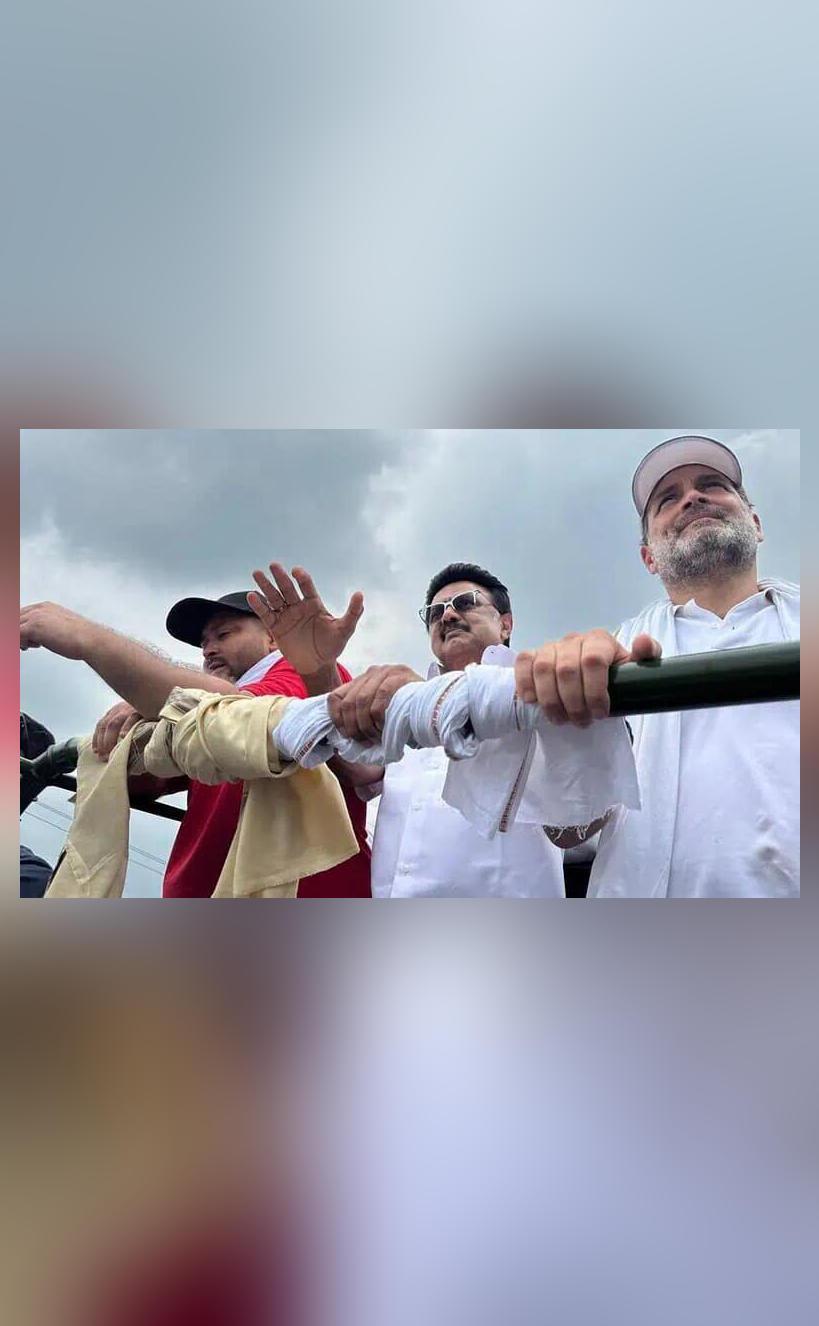
Which Language Will He Speak There?: BJP as TN CM Joins Rahul’s Bihar Yatra
In a recent development, Tamil Nadu Chief Minister MK Stalin joined Congress leader Rahul Gandhi’s ‘Voter Adhikar Yatra’ in Bihar, sparking a heated debate among political leaders. The BJP, in particular, was quick to react, with Union MoS and party leader L Murugan questioning the usefulness of Stalin’s participation in the rally. In a pointed remark, Murugan said, “I don’t know which language he will speak—English, Hindi, or Bhojpuri.” He went on to add, “Even if he speaks in English, the locals would have to translate it to Hindi.”
Murugan’s comments have been widely criticized as uncouth and disrespectful, with many seen them as an attempt to belittle Stalin’s participation in the rally. Stalin, a seasoned politician with a vast understanding of the Tamil language and culture, was seen as a significant addition to the rally, which aimed to highlight the importance of voting rights and electoral reforms.
The BJP leader’s remarks have also been seen as a deliberate attempt to play on regional sentiments and create a divide between Hindi-speaking regions like Bihar and Tamil Nadu. By questioning the language Stalin would use, Murugan was essentially implying that the Tamil CM was not familiar with the language and culture of the region he was visiting.
However, Stalin’s participation in the rally was seen as a significant boost to the Congress-led campaign, which has been gaining momentum in recent weeks. The rally aimed to bring attention to the issues faced by the people of Bihar, including the lack of job opportunities, poor healthcare infrastructure, and inadequate education facilities.
Stalin’s presence at the rally was seen as a symbol of solidarity with the people of Bihar, who have historically faced challenges in accessing basic amenities. As the CM of Tamil Nadu, Stalin has been at the forefront of several initiatives aimed at improving the lives of his state’s citizens, including the implementation of free education and healthcare programs.
In contrast, the BJP’s track record on these issues has been questionable, with many of its policies being criticized for their divisive nature and lack of inclusivity. The party’s attempts to play on regional sentiments and create a sense of separation between different states have been widely criticized.
Murugan’s remarks have also been seen as a reflection of the BJP’s inability to comprehend the complexities of regional languages and cultures. By questioning the language Stalin would use, the party leader was essentially implying that the Tamil CM was not capable of communicating effectively with the people of Bihar.
This attitude has been criticized as condescending and arrogant, with many seeing it as a reflection of the party’s lack of concern for regional languages and cultures. The BJP’s attempts to impose Hindi as a national language have been widely resisted by many regional parties and organizations, who see it as a threat to their linguistic and cultural identity.
In conclusion, Murugan’s remarks have been widely criticized as uncouth and disrespectful, with many seeing them as an attempt to belittle Stalin’s participation in the rally. The BJP leader’s comments have also been seen as a reflection of the party’s inability to comprehend the complexities of regional languages and cultures. As the political landscape of the country continues to evolve, it is essential for political leaders to adopt a more inclusive and respectful approach to regional languages and cultures.






